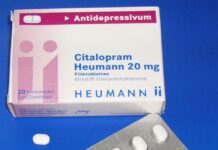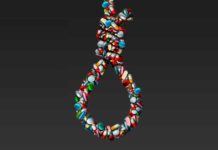Despite Official Recommendations, Young Children Are Still Receiving Drugs Instead of Therapy for ‘ADHD’
In 2011 the American Academy of Pediatrics (AAP) issued guidelines recommending therapy over stimulant drugs as the primary treatment for children diagnosed with ‘ADHD.’ New research from the CDC reveals, however, that children between ages 2 and 5 are still being prescribed medications before receiving the recommended therapy or psychological services. Overall, the researchers found that 75% of these children are being prescribed “ADHD’ drugs while no more than 55% receive psychological treatments. Incredibly, among children on private insurances, the percentage of children receiving psychological services for ‘ADHD’ showed no increase following the 2011 recommendations.
Does Your Child Have ‘ADHD’? It Might Depend On Your Doctor
A study published in the journal Pediatrics reveals large differences from one pediatrician to the next when it comes to diagnosing and prescribing drugs for ‘ADHD.’ The researchers found that the percentage of children being diagnosed with ‘ADHD’ varied from as high as 16% of patients at some offices to as little as 1% of patients at others. The data also revealed significant but lower variability in the pediatric diagnosis of anxiety and depression.
“A Community Faces the Mental Health Impact of Climate Change”
“In Nunatsiavut, climate change is already a terrible reality, and it’s taking a heavy toll on mental health,” Ellie Robins reports for the influence....
Are DNA Changes the Link Between Poverty and Mental Illness?
Researchers at Duke University who studied 183 adolescents for three years found that increased depression associated with poverty may be mediated by epigenetic changes in DNA. The...
Mindfulness Therapy May Be More Effective Without Antidepressants
While an estimated 74-percent of patients diagnosed with major depression receive a prescription for an antidepressant, new research reveals that mindfulness-based cognitive therapy (MBCT)...
“The Hefty Price of ‘Study Drugs’ Misuse on College Campuses”
For the Conversation, Binghamton University researcher Lina Begdache tackles the issue of the growing use of 'Study Drugs' in the student population. “Animal studies show...
Prescribing Antidepressants for Girls: Intergenerational Adverse Consequences
Children exposed to SSRIs during pregnancy, a recent study shows, were diagnosed with depression by age 14 at more than four times the rate of children whose mothers were diagnosed with a psychiatric disorder but did not take the medication. Such reports are usually met, appropriately, with an outpouring of reassurances from clinicians who take care of pregnant women, who need to protect their emotional wellbeing in whatever way they can. From my perspective as a pediatrician specializing in early childhood mental health our attention must be on prevention.
“The Hidden Harms of Antidepressants”
In a new article for Scientific American, Diana Kwon reports on how the true risks for suicide and aggression in children and teens taking...
Antidepressants Not a ‘One Size Fits All’ Solution, Researchers Find
The largest ever study of the thoughts and reactions of antidepressant users reveals that many people have vastly different understandings and experiences of the...
Coyne Covers Citalopram Controversy
In his “Mind the Brain” blog for PLOS, well-known researcher James Coyne reviews the controversy surrounding the latest case of a fraudulently reported study...
“Heal the Artists, Save the World”
Kelly Brogan, MD, writes: "Maybe your depression, chronic fatigue, ADHD, and chemical sensitivity are just ways that your body, mind, and soul, are saying no....
In Honor of Fear and Pain
Our use of antidepressants has turned single-episode struggles that recovered 85% of the time within one year, never to recur, into chronic and debilitating disorders that hold patients hostage in their own arrested development. But, If you are in the hole of pain, here’s what I have to say to you. It’s what I say to my patients, and what I tell myself in times of struggle.
Do We Really Need Mental Health Professionals?
Professionals across the Western world, from a range of disciplines, earn their livings by offering services to reduce the misery and suffering of the people who seek their help. Do these paid helpers represent a fundamental force for healing, facilitating the recovery journeys of people with mental health problems, or are they a substantial part of the problem by maintaining our modestly effective and often damaging system?
Childhood Trauma Predicts Lack of Response to Antidepressants
Research in Translational Psychiatry finds that childhood maltreatment and trauma predict a greater likelihood of developing chronic depression, and a reduced likelihood of responding to treatment...
Daughter of a Psychiatrist
Here I was, 15 years old and already in a long-term treatment facility. I was, on paper: crazy! This entire time, all the adults in my life had been speaking for me. I never felt like I was any of the things they said, but I went along with it. What else could I have done? Every time I rebelled, it only confirmed to my mother what she thought of me.
Interview: Researchers Deconstruct Ghostwritten Industry Trial for Antidepressant
Researchers, Jon Jureidini, Jay Amsterdam and Leemon McHenry, have taken a closer look at the data from a randomized control trial of citalopram (Celexa) that was ghostwritten and then used by the manufacturers to support claims of the drug’s efficacy and safety in the treatment of child and adolescent depression. To get the background on this story, we connected with Dr. Leemon McHenry, an investigator in this study and a lecturer in philosophy at California State University, Northridge.
Report from the Parliament: Can Psychiatry At Least Be Curious?
In the past six years, I have had the opportunity to speak at several conferences or meetings that I felt had particular potential to stir some political activity that would challenge current psychiatric practices, and one of those events was the meeting convened in the U.K.’s Parliament on May 11th, which had this title for the day: Rising Prescriptions, Rising Mental Health Disability: Is There a Link?
Antidepressants Do Not Prevent Suicides, May Increase Risk
When the CDC released data revealing an increasing suicide rate in the US, some experts, speaking to major media outlets, speculated that the increase...
“What Are Delusions – And How Best Can We Treat Them?”
For The Conversation, psychologist John Done, from the University of Hertfordshire, explains his approach to discussing delusions with his patients. Done recommends more qualitative...
Psych Patients Who Resist Stigma Do Better
A new study in press in the Journal of Schizophrenia Research finds that patients who actively resist the negative stigma associated with mental health...
Funny/Sad Video About Overmedication, ‘Immature’ Kids
A YouTube video called “Drugs for Kids” takes a rather tongue-in-cheek approach to the overmedication and overdiagnosis of kids. Studies reveal a correlation between how young...
Making the Case Against Antidepressants in Parliament
On Wednesday, May 11, there will be an inquiry by a work group in the U.K.’s Parliament into whether increases in the prescribing of antidepressants are fueling a marked increase in disability due to anxiety and depression in the U.K. I wrote about a similar rise in disability in the United States in Anatomy of an Epidemic, and the All Party Group for Prescribed Drug Dependence, which is the Parliamentary group that organized the debate, asked me to present the case against antidepressants.
“The New Eugenics: Why Genetic Theories of Mental Illness and Addiction Are a Damaging...
For The Influence, addiction expert Stanton Peele criticizes our current genetic and biological “brain disease” approaches to addiction and mental health.
Article →
ADHD: The Hoax Unravels
At the risk of stating the obvious, ADHD is not an illness. Rather, it is an unreliable and disempowering label for a loose collection of arbitrarily chosen and vaguely defined behaviors. ADHD has been avidly promoted as an illness by pharma-psychiatry for the purpose of selling stimulant drugs. In which endeavor, they have been phenomenally successful, but, as in other areas of psychiatry, the hoax is unraveling.
The FDA Is Hiding Reports Linking Psych Drugs to Homicides
In my wildest dreams, I could never have imagined being drawn into a story of intrigue involving my own government’s efforts to hide, from the public, reports of psychiatric drugs associated with cases of murder, including homicides committed by youth on the drugs. But that is precisely the intrigue I now find myself enmeshed in.












